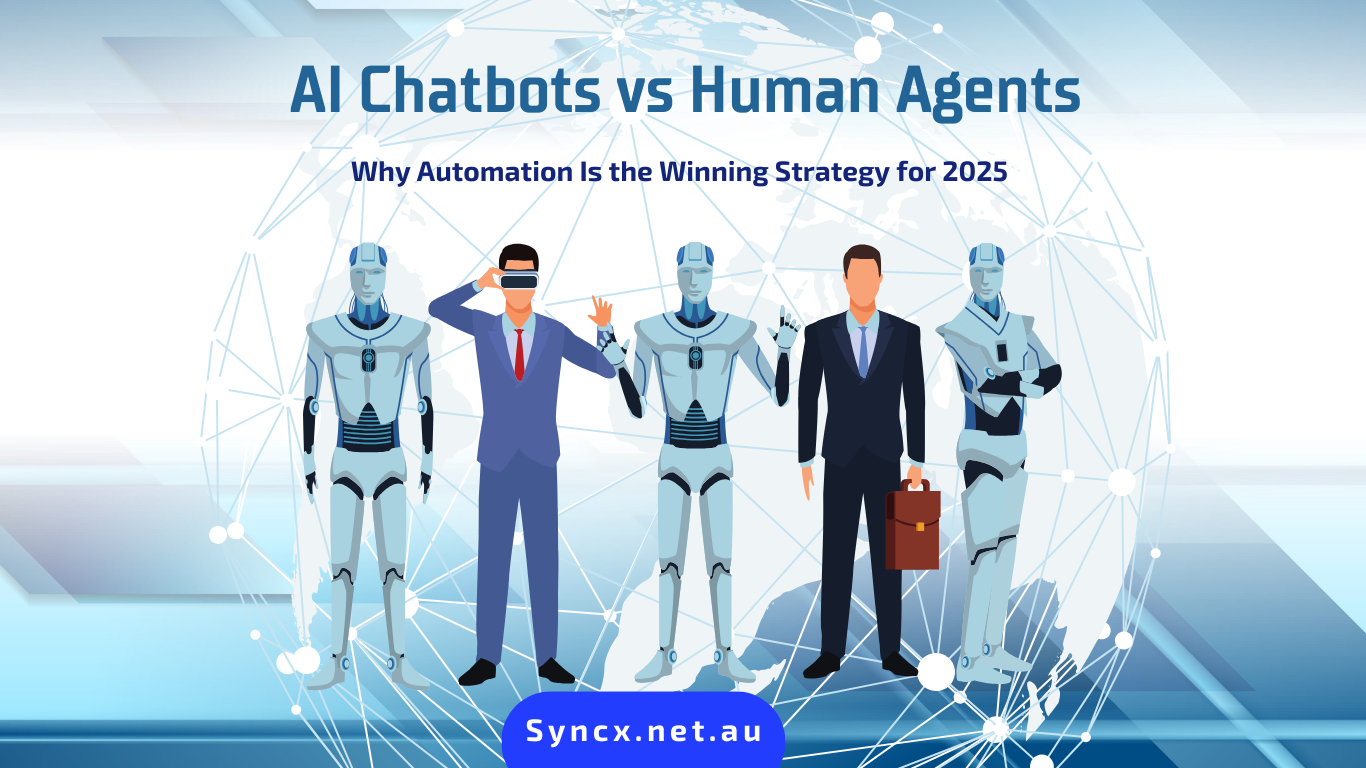
In the rapidly changing landscape of customer service, the discussion surrounding AI chatbots versus human agents is increasingly significant. As we progress through 2025, more businesses are embracing automation strategies that focus on efficiency, scalability, and enhancing customer satisfaction. AI Chatbots vs Human Agents, Why Automation Wins in 2025 explores why AI chatbots are becoming the preferred choice in customer service and how they work alongside human agents.
The Rise of AI Chatbots in Customer Service
AI chatbots have evolved from simple programs into advanced tools capable of addressing a wide array of customer inquiries. By leveraging machine learning and natural language processing, modern chatbots deliver personalized and context-aware responses.
Key Benefits of AI Chatbots
1. 24/7 Availability
AI chatbots provide service around the clock, ensuring customers can receive immediate assistance at any hour. This constant availability greatly boosts customer satisfaction and loyalty.
2. Cost-Effectiveness
Adopting AI chatbots can significantly lower operational expenses. By automating routine inquiries, businesses can reduce the need for a large workforce while allowing human agents to concentrate on more complex issues.
3. Scalability
As customer demands increase, chatbots can effortlessly scale to handle a higher volume of inquiries. This flexibility enables businesses to uphold high service standards without overwhelming their customer support teams.
4. Consistency and Accuracy
Chatbots offer consistent and precise responses, reducing the likelihood of human error. They are designed to provide trustworthy information, ensuring a smooth customer experience.
5. Data Collection and Insights
AI chatbots gather valuable data from customer interactions, providing insights that can lead to business enhancements. Analyzing this data allows organizations to better understand customer preferences and improve their service strategies.
The Ongoing Importance of Human Agents
Even with the benefits of AI chatbots, human agents are still essential, particularly for intricate or sensitive customer interactions. The personal touch and empathy they provide are vital in situations that demand a deeper understanding.
Finding the Right Balance
The most successful automation strategy in 2025 merges the strengths of both AI chatbots and human agents:
1. Triaging Inquiries
Chatbots can effectively manage routine inquiries, allowing human agents to concentrate on more valuable interactions that require their expertise.
2. Smooth Transition
When chatbots encounter inquiries that exceed their capabilities, they can seamlessly hand off the conversation to a human agent, ensuring service quality and customer satisfaction remain high.
3. Training and Support for Agents
Data collected from chatbot interactions can improve agent training programs, boosting overall team performance and the quality of customer service.
Conclusion: Adopting Automation in 2025
In 2025, implementing an automation strategy that utilizes AI chatbots is crucial for businesses aiming to excel in customer service. While human agents are vital for addressing complex issues, the efficiency and cost-effectiveness of chatbots make them perfect for handling routine tasks.
By finding the right balance between chatbots and human agents, businesses can improve customer satisfaction, streamline operations, and foster growth. As the future unfolds, adopting customer service automation will undoubtedly continue to be a successful strategy for organizations seeking to thrive in a competitive environment.

